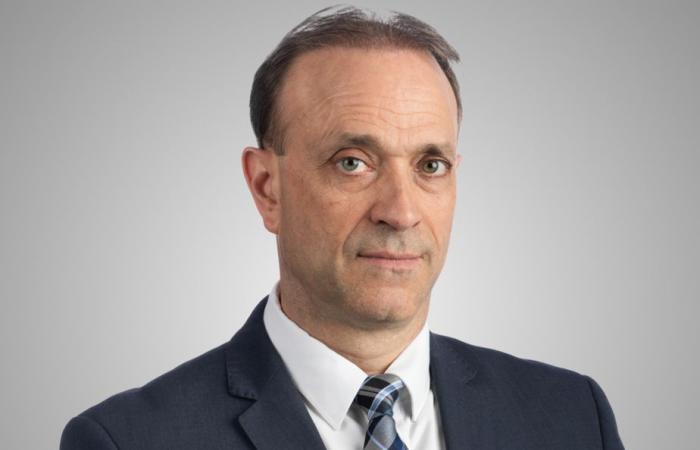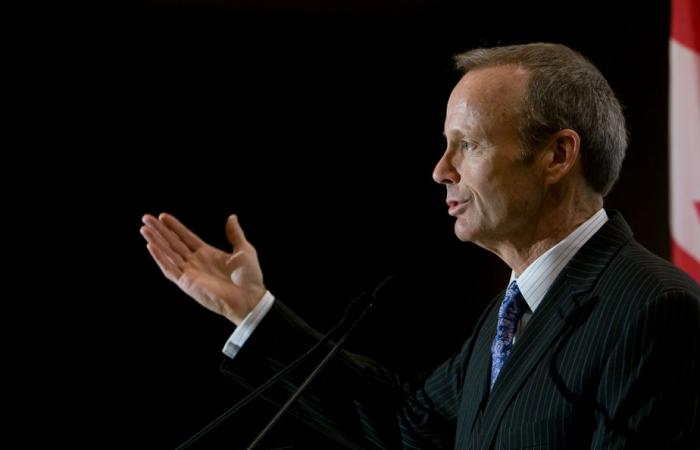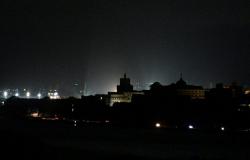(Ottawa) The leader of the Conservative Party, Pierre Poilievre, shouted loudly on Wednesday after seeing Justin Trudeau affirm, under oath, before the Commission on Foreign Interference, that he has in his possession the names of parliamentarians, former and current, and Conservative Party candidates who are involved in, or at risk of being, attempts at foreign interference.
Posted at 1:11 a.m.
Updated at 5:00 a.m.
“He is lying,” cried Pierre Poilievre, accusing the Prime Minister of dropping this bomb in order to forget the revolt against his leadership which is brewing within the Liberal Party.
According to our information, the list that Justin Trudeau would have in his possession contains around fifteen names of current and former parliamentarians from the Conservative Party. But Pierre Poilievre cannot identify and neutralize them for the simple reason that he refuses to obtain the security clearance which would allow him to have access to the same secret information that Justin Trudeau saw and which was collected by the Service Canadian Security Intelligence Service (CSIS).
Unlike the leader of the New Democratic Party, Jagmeet Singh, the leader of the Green Party, Elizabeth May, and the leader of the Bloc Québécois, Yves-François Blanchet, Pierre Poilievre refuses to obtain this famous security clearance on the grounds that it would prevent him from to adequately carry out his job as leader of the official opposition and to ask questions about foreign interference in the Trudeau government.
Mr. Poilievre also challenged Justin Trudeau to reveal the list of treacherous parliamentarians, knowing full well that the Prime Minister would be breaking laws affecting national security and CSIS if he followed this request.
If the past is any guide to the future, the Conservative Party is far from being immune to foreign interference activities carried out on Canadian soil by China and India, among other countries.
In 2011, a conservative elected official, Bob Dechert, found himself in embarrassment after it was revealed that he had been romantically involved with a journalist working for a news agency linked to China’s intelligence services.
At the time, Mr. Dechert was Parliamentary Secretary to Foreign Affairs Minister John Baird. He had access to confidential government information. The Prime Minister at the time, Stephen Harper, came to his MP’s defense. He maintained that the flirtation between the parliamentary secretary and the journalist had not led to any disclosure of government information.
Opposition parties had called in vain for Bob Dechert to be removed from office. A few months later, it was learned that journalist Shi Rong of the Xinhua agency had been recalled to China after the romance made headlines.
PHOTO ANDRÉ TREMBLAY, LA PRESSE ARCHIVES
Former Conservative minister Stockwell Day, in 2009
An influential former minister in the Harper government, Stockwell Day, who notably served as Minister of Public Security, for his part took up arms for the Chinese telecommunications giant Huawei a few years after his departure from politics in 2011. In July 2019 , he published on the Twitter network (X today) a photo of himself with the company’s president and founder, Ren Zhengfei, following a visit to the headquarters in Shenzen.
Banned in the United States because Washington judges that it constitutes a threat to national security, this company has long sought to establish itself in Canada in order to participate in the deployment of 5G technology in the country.
Mr. Day worked to defend the Chinese giant while the Conservative Party urged Ottawa to follow in the footsteps of the United States by banning it on Canadian territory. After three years of procrastination, the Trudeau government finally decided in May 2022 to prevent Huawei from participating in the deployment of the 5G network in the country.
Also, Alykhan Velshi, former close collaborator of Stephen Harper, became vice-president of Huawei in Canada. He vehemently denied that the Chinese telecommunications giant was a threat to national security while Canada’s main allies declared the opposite.
More recently, the Conservative Party included in its ranks a senator, Victor Oh, whose close ties to China made several of his caucus colleagues very nervous. Victor Oh was appointed to the Senate by Stephen Harper in 2013 and took mandatory retirement at the age of 75 in June.
According to Michel Juneau-Katsuya, security consultant and former CSIS executive, Pierre Poilievre abdicates his responsibilities as a leader who aspires to become prime minister by refusing to obtain the security clearance required to have access to CSIS information. Especially since the Conservative Party has already been involved in events affecting national security in the past.
He noted that at least five former Harper cabinet ministers worked for Chinese companies after their time in politics. It is therefore difficult to throw a stone at your opponent when you live in a glass house.
“It is irresponsible for a leader not to want to know about potential traitors within his party. If we were to be on the election campaign tomorrow, could Mr. Poilievre stand before the Canadian public and say: “I cleaned up my party”? No, he can’t because he refuses to get the security clearance. And he refuses for frivolous reasons,” analyzed Mr. Juneau-Katsuya.
“These are frivolous reasons because Mr. Poilievre already had a security clearance when he was a minister in Stephen Harper’s cabinet. So he knows very well what he can and cannot say. He can continue to question the Trudeau government about foreign interference without revealing what he learned from reading secret intelligence. And that’s what he must do. »







